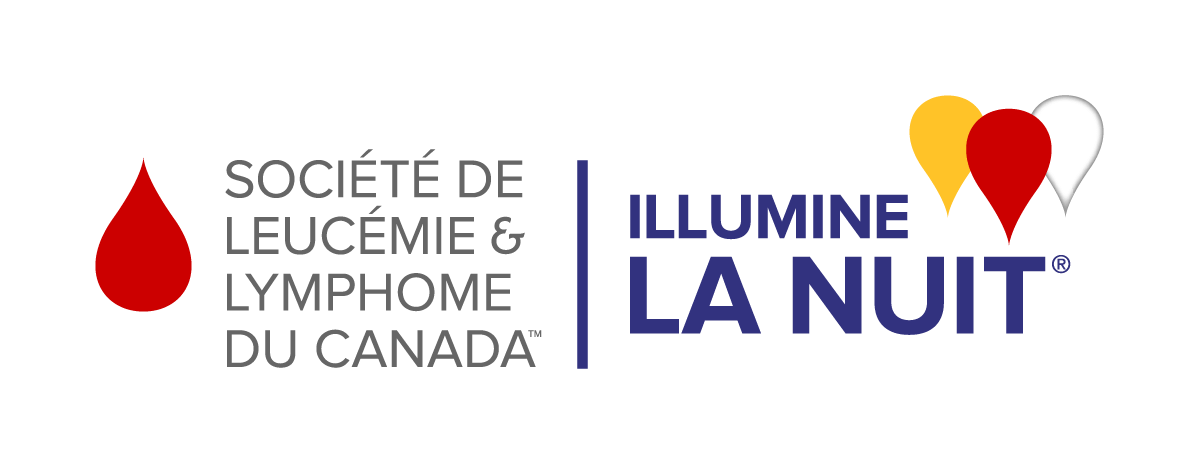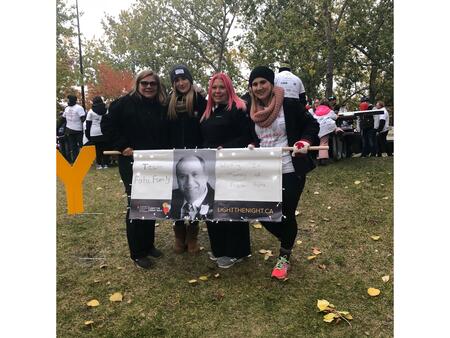I walk in memory of Frank Fata
I walk in memory of Frank Fata, my cousin and godfather, who passed away from leukemia on January 4th, 2018
What has been the biggest challenge in your blood cancer experience?
FRANK'S WIFE, MARY: Not knowing how to help Frank and not knowing what were the right things to do or say. Frank was struggling with depression while he was in the hospital; the biggest struggle was trying to stay positive for him and keep him in a good mental state. MARINA: Frank lived in Toronto, and he wasn't able to come to his son's wedding, which took place a few days before Frank passed away. For all of us who had travelled from Edmonton to Toronto for the wedding, we were going there to celebrate a good thing, and then to know that that was going to be the last time you were going to see your loved one at the same time - it was a very strange emotional rollercoaster. Frank was there in his suit at the hospital, so we took pictures with him. It was the same suit that was used for his funeral, too. The best man had gone to visit Frank a few days before the wedding, and at the wedding reception, the best man read Frank's words that he had prepared for his son and daughter-in-law. Frank had a big heart; he always wanted to make sure everyone around him was taken care of and had what they needed. Frank's condition took a turn for the worse very quickly, and then he was gone within 2 months.
How has your life been changed by a blood cancer?
FRANK'S WIFE, MARY: I am really lonely now, even though my kids and grandkids visit. In terms of having my partner with me, doing the cooking and cleaning for him, which I loved to do, I feel lonely. I had just retired when Frank got sick, so we never got to do the travelling we wanted to together, like going back to Italy. I feel robbed of those years we could have spent together. MARINA: I don't take for granted the times when I can see my family, because you never truly know when you can see them again. Even with COVID-19 right now, you can't necessarily hug your family in the same way. It's been a really good reminder not to take for granted the time we do have here. It also opened my eyes because this was my first experience with a blood cancer - watching him pass away and going into my first Light The Night - it was such a life-changing experience.
MARINA: My father, John, had participated in Light The Night for a number of years as a UFCW member, but it took me losing a loved one to join Light The Night. LTN changes you every time in a positive way. There is just so much love there.
When you walk in LTN, it is a radically different experience from other walks. It is such a community that rejoices in the memories of people who have passed, celebrates those who have kicked blood cancer's butt and supports those who are still fighting! People's energies just radiate throughout the entire night. Light plays such an important role in our lives and in our emotions, so when you see the lighting ceremony and you see those lanterns light up, it moves you deep inside. As you walk the path, as you see the Kilometre of Hope and the Kilometre of Memories - to see that representation as you are walking, you know that by you walking and raising money, that is the impact you are having on the organization and on people's lives. It gives you assurance that you are doing worthwhile work towards a worthwhile cause.
Blood cancers are one of those things that don't get the same amount of hype as breast cancer or prostate cancer. If Canadians united together and rallied around the cause of blood cancer, we would see MORE white lanterns at LTN because we would have more people who had kicked cancer in the butt, gone on to live their lives and made an impact. It would shed some light for Canadians just to know more about it - there are so many different types of blood cancers that affect people in so many different ways.

